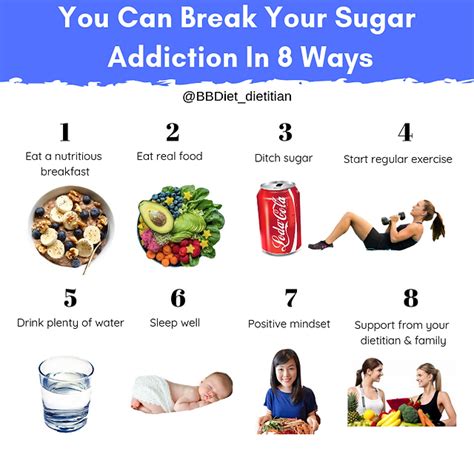Sugar addiction is often likened to an invisible enemy that resides in our daily lives, subtly influencing our dietary habits and overall health. It’s no surprise that attempts to overcome this addiction can be similar to battling any other form of dependency. As numerous individuals share their journeys toward a sugar-free life, it becomes evident that while the challenges are manifold, the solutions are diverse, ranging from gradual reduction strategies to more radical approaches like the ketogenic diet.
One recurring theme among those who have successfully kicked the sugar habit is the essential role of environment. Comments such as “It’s very difficult to create an isolation environment, unless one goes full Ted Kaczynski” capture the pervasiveness of sugar in our culture. Social events, office environments, and even daily grocery shopping can be stumbling blocks on the road to quitting sugar. Indeed, some suggest moving away from an environment where sugary temptations are omnipresent as a possible solution. However, reducing sugar consumption in a world inundated with it is by no means easy or straightforward.
The idea that sugar is culturally important, as seen in everything from birthday celebrations to workplace treats, posits a significant challenge. For many, the sheer ubiquity of sugar—whether in the form of a cake at the office or sweets at social gatherings—makes complete avoidance impractical. As one commenter notes, trying to adopt a more stress-free and less extreme strategy can be more sustainable. This notion resonates with the idea of mindful moderation rather than complete exclusion.
Diverse opinions on how to handle sugar addiction highlight that a one-size-fits-all approach does not exist. Some advocate for a more gradual reduction in sugar intake, suggesting that slowly decreasing the amount of sugar or shifting to less sugary alternatives can be an effective method. For instance, substituting sugary beverages with water or less sweetened options like flavored sparkling water can make a huge difference over time. The emphasis on avoiding refined or concentrated sugars while allowing for occasional indulgences fosters a more balanced and less restrictive dietary habit.
The ketogenic (keto) diet has garnered attention as a method for battling sugar addiction. By drastically reducing carbohydrate intake and increasing fat consumption, the diet aims to shift the body’s metabolism from burning glucose to burning fat. Despite its growing popularity, it isn’t without challenges. Many find the diet difficult to maintain, particularly because of the strictness required to stay in ketosis. Discussions around keto reveal that determining the right balance of protein and fats is crucial, and even then, occasional lapses can kick one out of ketosis. Thus, while keto may offer substantial benefits, including improved mental clarity and reduced cravings, it demands a high level of discipline and commitment.
Ultimately, successful navigation of sugar addiction requires a combination of strategies tailored to individual lifestyles and contexts. For instance, some find that regular exercise serves as a productive distraction from cravings, while others rely on emotional and physiological strategies such as intermittent fasting. There is also the psychological aspect of cravings, where the act of completely eliminating sugary foods may intensify the desire for them. Here, substitutes like fruit, which can satisfy the sweet tooth while providing health benefits, come into play. Indeed, many share personal tricks such as focusing on low-sugar fruits to satisfy cravings while avoiding processed goodies.
The complexity of sugar addiction means that it’s as much about individual psychology as it is about lifestyle changes. The accounts shared by different people demonstrate that, while the journey may be tough, it is far from impossible. Structured lifestyles, gradual adjustments, mindfulness, and perhaps most importantly, a supportive community can make all the difference. Remember, overcoming sugar addiction is not just about cutting out sweets; it’s about embracing a healthier, more conscious way of living.


Leave a Reply